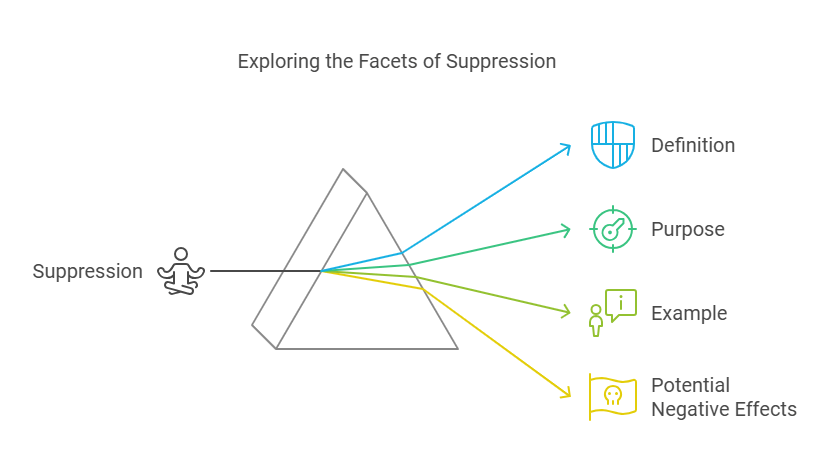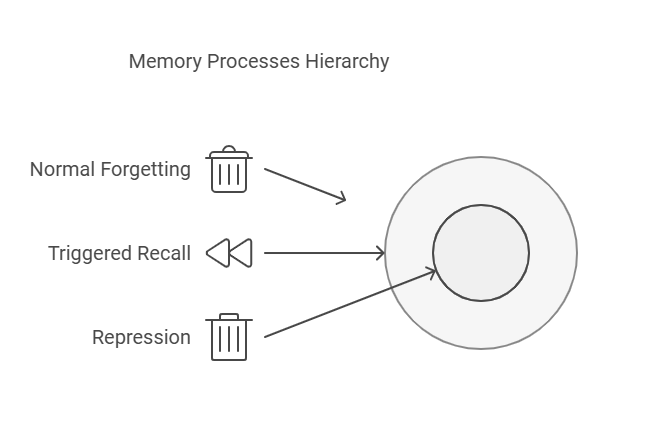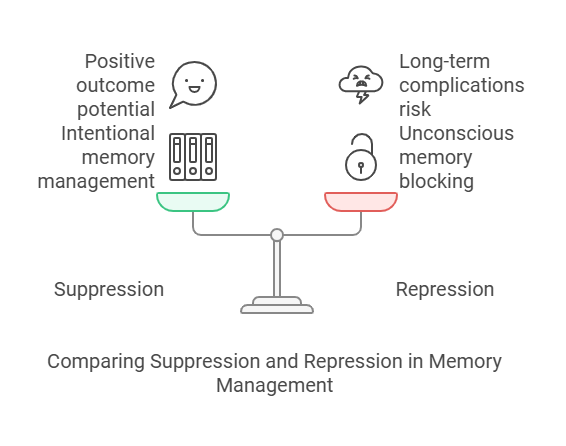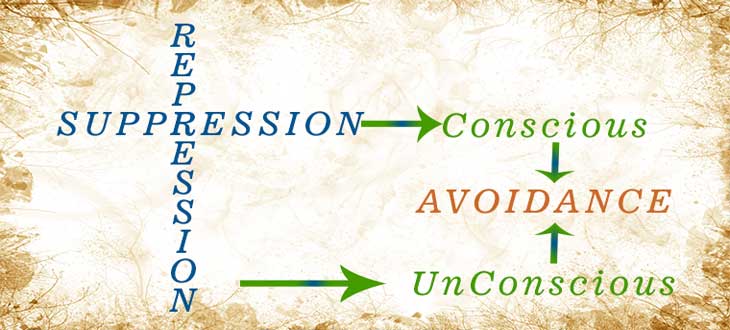Repression and suppression are very similar defense mechanisms which people use in order for them to cope with a stimulus that can harm them.
What is the Defense Mechanism of Suppression?
Suppression is a psychological defense mechanism where an individual consciously pushes unwanted thoughts or emotions out of their awareness. This coping strategy helps them focus on what they need to do without getting sidetracked by inappropriate impulses or time constraints.
It is a way to cope with stress, anxiety, and other negative feelings by avoiding them altogether. However, suppression can have negative effects in the long term, as the suppressed emotions may resurface in unhealthy ways.

Consider a scenario where a wife is annoyed by her husband’s behaviour while some guests are around. In such a situation, she may choose to control her reaction and postpone addressing the issue until they have left.
While interacting with the guests, she may tell herself to focus on them and forget about her husband’s behaviour for the time being. By doing this, she manages her feelings of anger and controls her actions in the present. This approach can be helpful because it buys her time to take action without causing a scene in front of the guests.
What is the Defense Mechanism of Repression?
Repression, also known as dis-associative amnesia, is a psychological defense mechanism that involves unconsciously blocking out unpleasant thoughts, feelings, and impulses. This is similar to suppression, but repression is done without conscious awareness. Individuals might use repression to become unconscious about traumatic past memories.
Some examples of repression include:

- A person having no recollection of the abuse suffered during childhood
- A man having no recollection of an accident he had met with
- A woman having no recollection of intense pain she had gone through during childbirth
This is helpful in the short run because it saves the person from the intense negative emotions associated with these memories. However, these memories don’t just disappear; they manifest through a symptom or series of symptoms and may continue to influence our behaviour. In the first example above, the person may find it challenging to get into relationships later, or in the second one, the man may develop a fear of driving without knowing why.
Thus, the protective purpose that repression has also given us side effects, which may cause hindrance.
So, how is repression different from forgetting?

While it is common to overlook or forget unimportant information or even routine aspects of daily life, forgetting important information in the absence of more pressing concerns is often more unconscious in nature. Normal forgotten material can be recalled with the help of a trigger. For instance, if I forget to make an appointment with the doctor, a phone call later may jog my memory. Repression, however, involves unconsciously forgetting an idea, incident, or experience. A routine trigger may not suffice to retrieve these repressed memories.
What is the difference between Suppression and Repression?
Freud argued that Suppression generally produces more positive outcomes than Repression. Suppression involves intentionally dealing with unpleasant but not morally reprehensible thoughts or actions.
For example, focusing on one problem at a time and suppressing other issues until the primary concern is resolved, as illustrated in the wife’s example mentioned earlier. Counting to ten before reacting in anger is another example of suppression that can be useful in daily life.

In contrast, Repression involves unconsciously forgetting an idea, incident, or experience. As an adult, a person who has repressed a particular incident cannot access the related memories through conscious effort alone; the memories are simply unavailable.
Although both Suppression and Repression serve a purpose in the short term, they may lead to complications in the long run.
If you would like to learn to help clients deal with issues resulting from Suppression and Repression, check out the comprehensive course on an eclectic approach to psychotherapy, Cognitive Hypnotic Psychotherapy Diploma.

